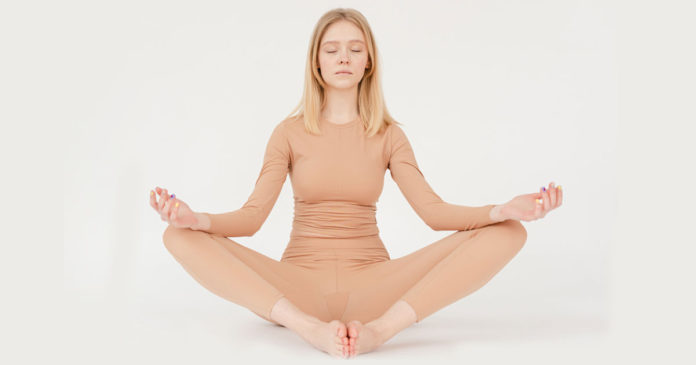These days, yoga and meditation have become quite popular among those who want to live lives that are balanced, peaceful, and well-rounded. These two customs date back hundreds of years, and they originated in prehistoric ceremonies.
Yoga is a holistic practice that incorporates physical postures, breathing techniques, and meditation techniques. Striking a proportion between the body, intellect, and spirit is the objective. Conversely, meditation helps with emotional control, mental calm, and concentration.
There are several advantages to yoga and meditation. Strongness, flexibility, and the capacity to maintain an erect posture are all enhanced, alongside tension reduction. You may improve your general health and relax with regular yoga practice. It could also fortify your defenses, boost your vitality, aid in weight loss, and improve your quality of sleep.
Meditation reduces tension and anxiety, which aids in mental calmness. Frequent meditation may improve your ability to focus and concentrate, feel emotionally well, develop self-awareness, and achieve inner peace.
In yoga, mindful movement and breath awareness are practices that have similarities to meditation. Conversely, meditation is all about calming the mind using techniques like mindfulness or phrase repetition.
We will contrast, compare, and examine the similarities and differences between yoga and meditation in order to fully understand both disciplines. To maximize our well-being, happiness, and peace in this world, it may be beneficial to make use of these tried-and-true methods’ capacities in order to comprehend them better.
Exploring the Physical and Mental Benefits of Yoga
Yoga and meditation are becoming more and more well-liked across the world because of their many physical and mental health advantages. Regular yoga practice may be good for our mental and physical health.
Being more flexible is one of yoga’s main physical benefits. The asanas (poses) in yoga engage various muscle groups by strengthening and extending them. This increases our flexibility and range of motion.
Mindfulness practices and deep breathing have been demonstrated to alleviate anxiety and tension. Engaging in yoga and meditation facilitates the release of concerns and directs attention towards the present moment through the cultivation of mindfulness.
The Power of Meditation: Uncovering its Psychological and Emotional Benefits
People who practice mindfulness become more adept at controlling their emotions. This is the ability to respond to challenging circumstances or stimuli with intelligence as opposed to only acting on impulse. People may strengthen their bonds with one another and gain more emotional stability by learning compassion for both themselves and other people.
Improved stress management has also been connected to yoga and meditation. Frequent exercise may help reduce the negative physiological impacts of concern by initiating the calming response. Consequently, this reduces the level of the stress hormone cortisol, leaving you feeling calm and collected overall.
In conclusion, consistent yoga and meditation practice may greatly enhance your mental and emotional health. Participating in these pursuits may aid in general well-being in the modern world by decreasing the likelihood of anxiety and melancholy and enhancing the capacity to control one’s emotions and deal with stress.
Differences Between Yoga and Meditation: Techniques and Approaches
Yoga and meditation are two newer health and wellness modalities that may help people relax and become more aware of their surroundings. While both programs seek to enhance mental and physical well-being, they do so in different ways.
Yoga is a holistic practice that includes breathing exercises (pranayama), physical positions (asanas), and meditation. It includes a range of methods for enhancing the body’s general strength, flexibility, balance, and self-awareness. There are several variations of yoga, such as Hatha, Vinyasa, and Ashtanga. Each person uses a different combination of positions and focuses on different elements of the method.
In contrast, the sole purpose of meditation is to condition the mind to attain a state of profound relaxation and receptiveness to novel information. It involves being in a comfortable posture, either sitting or laying down, and focusing on the current moment. Guided visualization, transcendental meditation (TM), mindfulness meditation, and loving-kindness meditation (metta) are a few diverse forms of meditation.
Yoga is a physical discipline that incorporates breathing exercises and meditation techniques. You don’t need to do the physical yoga positions in order to meditate on your own.
Yoga has certain stages or routines that must be followed, making it a more structured practice. Flow is created throughout the workout by synchronizing your breathing and body movements. In contrast, meditation involves sitting quietly and employing awareness or concentration to cleanse your mind.
Yoga and meditation have several health advantages, including lowering stress, enhancing concentration and attention, raising self-awareness, enhancing mental health, and promoting overall wellness. Any one of these strategies might be used, depending on their goals and preferences.
Yoga, to put it briefly, is a kind of physical exercise that incorporates breathing techniques, meditation, and physical movement. Conversely, the three main goals of meditation are quiet, mental cleansing, and awareness. While each workout has its own set of methods and approaches, they all strive to enhance both physical and mental well-being.
Finding Your Balance: Which Practice is Best for You?
Although there are several additional mind-body techniques, yoga and meditation are the most well-known. Individuals lacking experience in mind-body practices but interested in integrating one into their daily routines may encounter a challenge when comparing yoga and meditation.
Breathing and bodily movement are combined in the physical practice of yoga. It focuses on increasing the body’s strength, flexibility, and relaxation via various exercises and routines. It approaches health from the perspective of the full person, including awareness and activity alike.
As an alternative, yoga and meditation cultivates a tranquil and lucid state of mind. It usually consists of sitting motionless or completing concentrated exercises like repeating a phrase or participating in guided meditation. You may experience inner calm, improve attention, and feel less anxious by practicing meditation.
You may think about trying yoga or meditation, depending on your goals and requirements. Yoga may help if you want to become more flexible and strong, move more rapidly, or sometimes just relax. However, if one’s intention is to concentrate on something that merely cultivates inner tranquility and mental equilibrium, meditation might be a more suitable alternative.
However, it’s important to remember that these behaviors are not exclusive to one another. Many individuals discover that meditating and doing yoga together has additional positive health effects. You may get the physical advantages of yoga and feed your mind with meditation by incorporating both practices into your daily routine.
You have to decide for yourself whatever yoga and meditation combo works best for you. It means taking into account not only your objectives and style of life, but also your bodily and emotional demands. Always keep in mind that by engaging in yoga, meditation, or both, you may enhance your overall health.
Embrace a Life of Mindfulness with Yoga or Meditation – The Choice is Yours!
In conclusion, those who want to live more calm lives may find that yoga and meditation are both highly beneficial. It basically boils down to personal preference and objectives whether you decide to meditate or perform yoga to focus on your body or mind.
Yoga combines breathing exercises, meditation, and physical movement to provide a holistic method of being conscious. As a consequence, you gain strength, balance, and flexibility. Additionally, it relaxes and clears your mind. Yoga may be done at any age or level of fitness since it can be done in many different styles and intensities.
Conversely, the goal of meditation is to teach the mind how to reach a deep level of stillness and heightened awareness. Paying close attention and practicing meditation may help one’s overall health, emotional stability, and general clarity. Meditation may be done anywhere, at any time, and doesn’t need any certain amount of space.
Research suggests that engaging in yoga and meditation might potentially alleviate mental health concerns by reducing anxiety, promoting emotional well-being, improving sleep quality, and improving cognitive performance. They also boost immunity, lower blood pressure, and give you more energy—all of which are good for your health.
You are the one who has to decide what your needs and preferences are for consistent yoga and meditation practice. While some people would find comfort in the hurried yoga postures, others could find comfort in the quiet of meditation programs.
Whatever path you use to cultivate awareness—yoga or meditation, for example—it will surely benefit your body, mind, and general well-being. Take some time today to focus on yourself. Learn more about these methods and choose the ones that speak to you the most. Proceed with your quest towards increased self-awareness and inner serenity thereafter.
Should I Do Meditation Before Or After Yoga ?. You can check this complete article guide to get more insight about yoga and meditation. It will enhance your knowledge further about those two amazing practice.











